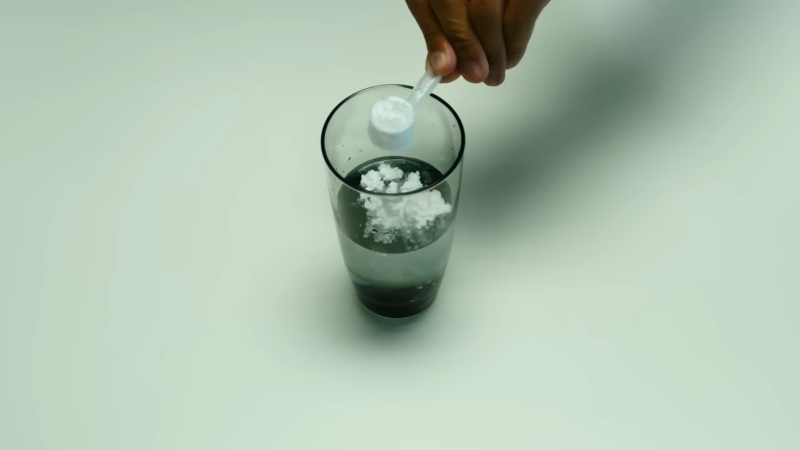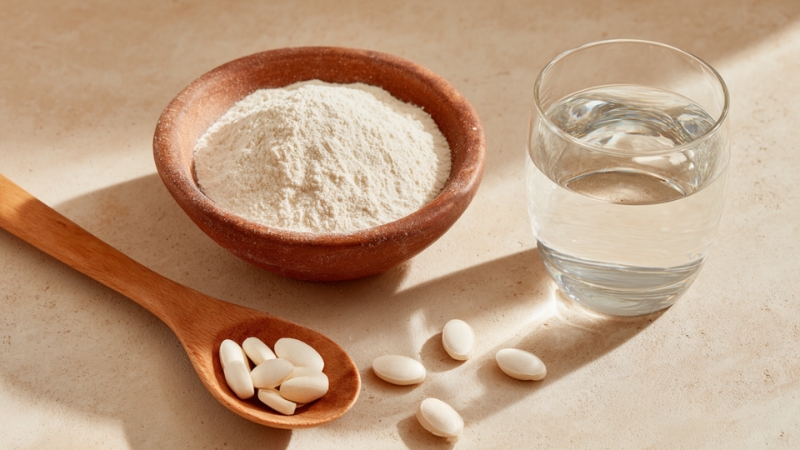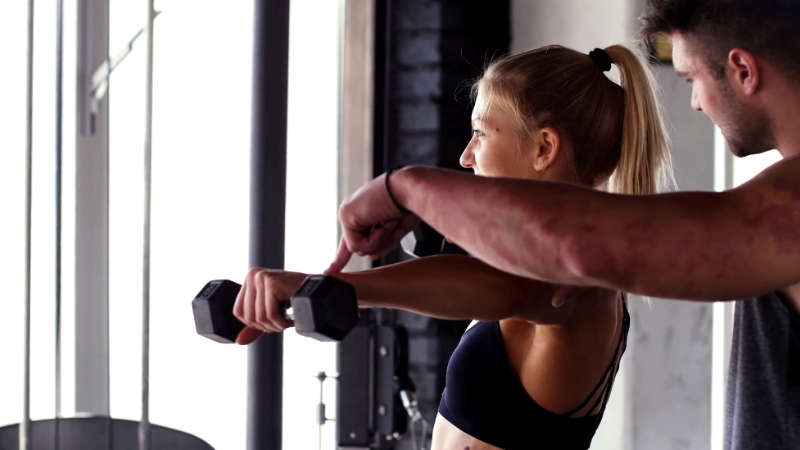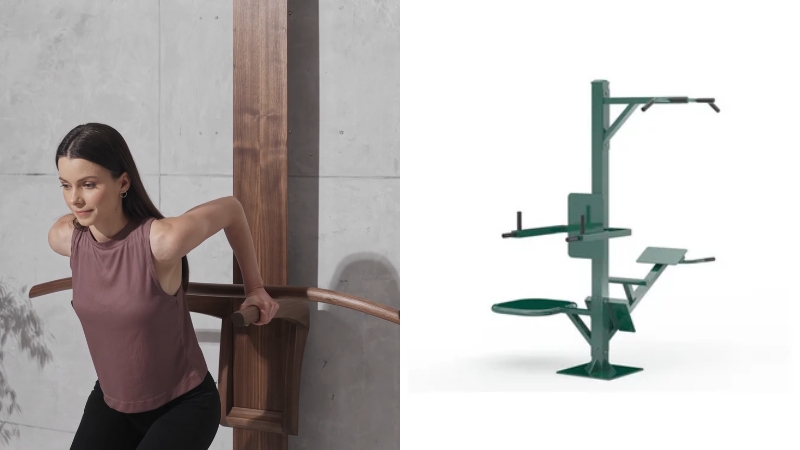
Share Post:
Creatine might be famous for boosting strength and energy, but for some folks, it seems to have… other effects too. If you’ve noticed your bathroom habits shifting after tossing it into your routine, you’re not imagining things—but you’re also not necessarily looking at a red flag.
There’s currently no strong evidence that creatine causes digestive issues like more frequent bowel movements when taken at recommended doses (around 3 to 5 grams per day).
Still, some people, especially those new to creatine or taking large doses, might experience stomach discomfort.
Sometimes it’s not the creatine itself but the extras hiding in the mix—flavorings, fillers, or other additives—that stir things up.
Bottom line? For most, it’s smooth sailing. But if your gut’s been raising its hand since you started supplementing, there’s a good chance it’s more about how you’re taking creatine than the fact that you are.
Table of Contents
ToggleSo… Does Creatine Make You Excrement?

In some cases, yes—but it’s not exactly par for the course when dosing is kept in check.
Stick to the usual 3 to 5 grams per day, and most people have zero digestive drama. Things tend to go sideways when the intake climbs too high—think 10 grams or more in one go—or when the supplement is packed with questionable extras like fillers, sweeteners, or unpronounceable “flavor enhancers.”
Let’s look at what the numbers say:
- 5 grams twice a day: About 29% of participants in one study reported diarrhea. Interestingly, that was pretty close to the placebo group.
- 10 grams all at once: Digestive complaints spiked to 56%. That’s a big jump—and a big hint that your gut might not love large single servings.
The takeaway? Bigger scoops don’t mean better results.
Creatine can fuel your workouts, but your stomach’s only on board when you’re not trying to hit your weekly total in one gulp. Responsible dosing wins here.
Why Does It Happen?
Creatine, at its core, is an osmolyte. That means it has a strong tendency to pull water toward it, kind of like how a high-performance engine demands high-octane fuel.
Once it enters your system, it starts drawing water into your muscle cells, which is part of what gives you that full, “pumped” feeling during a workout.
But here’s the catch—creatine doesn’t come with a built-in GPS. While a good portion of that water heads to your muscles (where it belongs), some of it can end up pulling fluid into your intestines.
And when your gut suddenly finds itself with extra water to manage, things can get a little… accelerated. Looser stools, urgent trips to the bathroom, maybe even mild cramping. It’s not dangerous, just inconvenient—especially mid-leg day.
Now, hydration plays a big role in how your body handles creatine. If you’re not drinking enough water, the supplement’s osmotic effects can throw off your internal balance, leaving your digestion out of sync. Think of it like revving a V8 engine with half a tank—you’re going to feel that misfire.
A 2019 study found that participants over 50 who took just 2 grams of creatine daily and exercised twice a week for five weeks lost slightly more body fat compared to those who exercised without it.
A 2023 review echoed those findings in younger adults as well, showing that creatine may offer modest fat-loss benefits when paired with regular training.
Then there’s the issue of what else is hiding in your scoop. Not all creatine supplements are just creatine. Some are dressed up with artificial sweeteners, dyes, preservatives, or “proprietary blends” that sound flashy but can irritate your gut like cheap gas clogs an engine.
Especially sugar alcohols like sorbitol or maltitol—they’re infamous for causing bloating and digestive distress even in small amounts.
How to Avoid Bathroom Blitzes

1. Stick to the Sweet Spot (3-5g per day)
No need to go full throttle. The regular dose is enough to saturate your muscles over time. Loading phases are optional—and honestly, kinda overrated unless you’re in a time crunch.
2. Split Higher Doses
If you do decide to load, split it into smaller 5g servings throughout the day. Don’t pour it all in at once like you’re fueling a dragster.
3. Hydrate Like a Pro
Creatine pulls water. If you’re not drinking enough, your gut might bear the brunt. Aim for at least 3 liters a day, and more if you’re training hard. Water is your digestive system’s wingman here.
4. Go for Clean Labels
Choose creatine monohydrate that’s third-party tested and doesn’t read like a chemistry quiz. Avoid supplements with mystery blends, sugar alcohols, or “natural flavors” that might be anything but.
When Should You Actually Worry?
View this post on InstagramA post shared by Celebrity Nutrition Expert + Fitness Hall of Famer (@jj.virgin)
Let’s not be alarmist. Most digestive discomfort from creatine is like getting a check engine light when your gas cap’s loose—minor, fixable, and usually harmless.
Still, if you’re:
- Dealing with ongoing, severe stomach pain
- Noticing symptoms even after lowering your dose
…put the scoop down and talk to your healthcare provider. It might not be the creatine—it might be something else that’s been quietly simmering.
Myths That Should Be Flushed
There are a few tall tales that refuse to quit. Let’s call them out:
- “Creatine causes liver and kidney damage.”
Nope. Healthy individuals show no harm to liver or kidney function, even after years of use. - “Creatine makes you fat.”
Weight gain? Sure—because of water retention and muscle growth. But fat? Not unless you’re pairing it with donuts. - “It causes acne.”
No science backs this. If your skin’s breaking out, look at your sweat management, not your creatine. - “It dehydrates you.”
Actually, it may help with hydration—if you’re drinking enough water alongside it.
Final Thoughts
@antonis_foraris #gym #gymtok #creatine #bodybuilding #athlete ♬ Darci On My Own speed up – 𝟑𝟎𝟑 𝐌𝐢𝐧𝐞.
So, does creatine make you excrement? It might. But only if you’re pushing doses like you’re chasing a record and not drinking enough water to match.
For most folks, sticking with 3-5 grams a day, staying hydrated, and picking a clean product is enough to avoid any GI drama.
It’s a supplement, not a laxative. Used correctly, it shouldn’t have you sprinting to the bathroom. And if it does? Dial it back. You don’t need to suffer for your gains.
Related Posts:
- Does Creatine Make You Hungry? Or Could It Be…
- Can Creatine Cause Constipation? All the Details You…
- How Long Does It Take for Creatine to Leave Your…
- 8 Women-Only Fitness Studios in Miami You Need to Know About
- One and Done Workout - Everything You Need to Know About It
- Does Losing Weight Make You Taller? Exploring the Connection













